

Solvents – Simply Essential
Solvents’ Essential Uses Contributing to the Benefits of the Green Deal

In industrial settings, coatings need to withstand harsh conditions, including heavy mechanical stress, chemical exposure, and environmental influences. Solvent-based paint systems are well-suited for these demands. They offer high resistance to chemicals, oils, and solvents, along with excellent abrasion resistance, making them more durable and ideal for heavily stressed surfaces. They can also be applied over a wider temperature range than water-based systems, which adds flexibility during processing. Unlike water-based paints, solvent-based systems don’t require preservatives or fungicides to remain durable. They also tend to dry faster and need less surface preparation, which boosts efficiency and helps save time, energy, and costs. In industry, high demands are placed on a coating system. This is exposed to high mechanical loads as well as the effects of various substances and environmental influences.
Solvent-based paint systems generally offer high resistance to chemicals, oils, and solvents, making them ideal for such industrial applications. In addition, they have excellent abrasion resistance and are, therefore, more durable and resistant. This makes them particularly suitable for heavily stressed surfaces. Furthermore, they can be processed in a larger temperature range compared to water-based systems. In solvent-based systems, preservatives and fungicides are not necessary to ensure the durability of the paint. In addition, solvent-containing paints usually dry faster, and the substrate pre-treatment is less time-consuming. This significantly increases the efficiency of the application and thus saves time, energy, and costs.
SPOT ON
Solvent Naphta
Isobutyl acetate (iBuAc) CAS 110-19-0
Methoxypropyl acetate CAS 84540-57-8


Solvents play a crucial role in the cosmetics industry, particularly in the formulation of hairsprays. Solvents are carefully selected to ensure compatibility with both the hairspray’s formula and its propellant, thus enabling the product to deliver a consistent and reliable performance. The unique properties of solvents enable rapid evaporation, allowing for an immediate hold without imparting unwanted moisture to the hair. This fast-evaporating characteristic is essential for user convenience, as it permits the hairspray to be applied efficiently, drying almost instantaneously to avoid the inconvenience of wet hair.
In addition to enhancing the practicality and user experience of hairsprays, solvents play a significant role in maintaining the integrity and stability of the product. By facilitating the seamless delivery of active ingredients and ensuring their proper dispersion, solvents help achieve the desired styling effect while preserving the aesthetic and functional qualities of the hairspray.
These functions and properties of solvents underscore their importance, as they not only enable indispensable improvements in product quality and performance in numerous industrial applications but also play a crucial role in optimising everyday consumer products.
SPOT ON
Methylal (CAS 109-87-5 – EC 203-714-2)


Solvents: Key to Efficient and Sustainable Plastic Recycling
Solvents play an indispensable role in plastic recycling by enabling the selective dissolution and separation of various types of plastics. This process allows for the precise removal of impurities, colors, and odors, ensuring that only pure plastics meet the highest quality standards re-enter the recycling loop. This purification step is crucial, as contaminants can compromise the usability of recycled plastics.
In the recycling process, solvents facilitate a multi-stage operation where plastics are immersed in specialized solvent baths. Here, specific solvents selectively dissolve the target materials, allowing for efficient separation and purification. After this process, the solvents are recovered and reused in subsequent recycling cycles. This closed-loop system not only minimizes solvent waste but also promotes resource efficiency and significantly reduces environmental impact. Through their application, solvents enhance the sustainability of plastic recycling, support circular economy goals, and contribute to the reduction of plastic waste in a highly efficient and environmentally responsible manner.
SPOT ON
Light aliphatic hydrocarbons:
Category 5: C5 Aliphatics, Category 6: C6 Aliphatics, Category 7: C7-9 Aliphatics
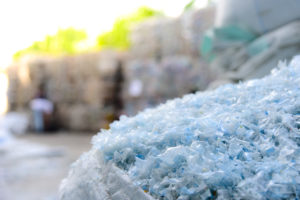

In semiconductor manufacturing, solvents play a crucial role in ensuring the precision and quality required for modern electronics. After applying the photoresist layer to a substrate, material accumulations often form at the edges of the wafer. These accumulations can affect subsequent exposure and etching processes and lead to inaccuracies that impair device performance.
A precisely controlled solvent stream is used to remove these edge accumulations, effectively cleaning and smoothing the edges of the wafer. The properties of the solvent allow it to selectively dissolve excess material without affecting the essential photoresist layer. This ensures that subsequent process steps, such as exposure to light patterns and etching, proceed uniformly, minimizing the risk of defects and ensuring consistent quality across the entire wafer.
Targeted and precise application of solvents optimises solvent consumption and, where possible, enables solvent recovery. This approach increases resource efficiency and promotes the sustainability of the entire semiconductor production process. Solvents thus make a significant contribution to advanced semiconductor manufacturing while highlighting their key role in the production of high-quality and reliable electronic components with minimized environmental impact.
SPOT ON
1,3-Dioxolane CAS 646-06-0


Veterinary injectable preparations are essential for maintaining animal health, delivering a variety of therapeutic drugs. These formulations include both active pharmaceutical ingredients (APIs) and key excipients such as vehicles, buffers, antioxidants, and preservatives. The vehicle, typically a solvent, is carefully chosen to dissolve the API and ensure the product’s stability and effectiveness.
In veterinary practice, non-aqueous solvents are often used for subcutaneous and intramuscular injections, especially with water-insoluble drugs. Selecting the right solvent is crucial for ensuring the formulation’s compatibility and preserving its physical and chemical integrity.
APIs can also be formulated as granules or suspensions for addition to food or water. However, injectables tend to work faster, are easier to dose, and are often more effective—particularly when treating specific animals within a larger group.
SPOT ON
Glycerol formal CAS 4740-78-7 and 5464-28-8


Many agrochemical formulations rely on heavy aromatic solvents to solubilise active ingredients such as fungicides, herbicides, and pesticides, ensuring effective crop protection.
C10-C13 aromatic solvents provide the necessary solvency and stability to keep these active ingredients in solution. They also enhance the spreading and application process, helping to form a consistent, thin protective film over crops and plantations.
Without these solvents, applying active ingredients would be more challenging and less effective, potentially leading to reduced crop yields.
SPOT ON
C10-C13 aromatic


C10 aromatics are used as solvents to stabilise and solubilise fuel additive formulations as a carrier fluid. Using solvents in this application is essential because they dissolve and stabilise the solids in the fuel additives.
This ensures that active ingredients like defoamers, demulsifiers, corrosion inhibitors, octane/cetane improvers, and extreme pressure additives are effectively integrated into the fuel. Without solvents, the solids might not dissolve completely, leading to inadequate dosing and reduced effectiveness of the additives, resulting in lower engine performance.
SPOT ON
C10 aromatics
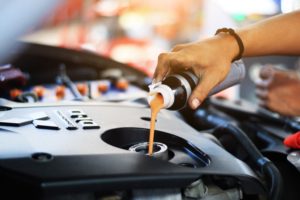

Metal bridges allow roads or railways to cross rivers or even seas. Durability and quick drying time are crucial factors in the coatings used to protect metal structures from corrosion. Many common solvents such as glycol ethers are used in solvent-based coating mixtures, greatly influenced by resin technology. Aromatic hydrocarbon solvents remain in use due to their high solvency power and the durability they bring to finished products.
SPOT ON
Glycol ethers and aromatic hydrocarbon solvents


If you paint in oils, you will need solvents to thin your paints and mediums. You will also need solvents to clean your brushes and palette. Using specific artists’ White Spirit makes a leaner mixture with the colour and evaporates quickly. It can also be used to clean your brushes and to create your own painting mediums as well as remove varnishes in preparation for re-varnishing. Low-odour solvent white spirit that has been refined to eliminate toxic aromatic compounds.
SPOT ON
C9– C14 Aliphatics (<=2% aromatics)


Solvents in brake fluids are crucial for safe driving. When you press your foot on the brake pedal, the brake fluid translates this force into pressure on the brakes, halting the vehicle. Solvents ensure the brake fluid maintains a high boiling point, preventing dangerous vapour bubbles from forming and protecting your brakes by absorbing free water that can cause corrosion.
SPOT ON
Glycol Ethers such as:
DEGEE (CAS: 111-90-0 – EC: 203-919)
DEGME (CAS:11-77-3 – EC: 203-906-6)
TEGBE (CAS: 143-22-6 – EC: 205-592-6)
TEGEE (CAS:112-50-5) – EC: 203-978-9)
TEGME (CAS: 112-35-6 – EC: 203-962-1)
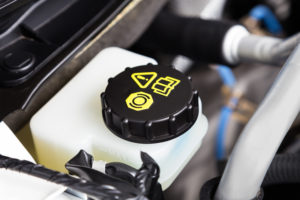

Ketones are used in carbon-fibre-reinforced polymers (CFRP) – plastics renowned for their exceptional strength and lightweight properties. CFRP can be used in body panels for cars or in wing spars and aircraft fuselage components, increasing the high strength-to-weight ratio.
The carbon fibres are layered with epoxy resins, and the high solvency power of ketones softens the resin, facilitating its easy and uniform application between the layers. The solvent’s low boiling point allows it to evaporate quickly, enabling the layers to bind easily and form a robust and durable product.
Additionally, CFRP is widely used in various sports equipment including squash, tennis, and badminton rackets, sport kite spars, high-quality arrow shafts, hockey sticks, fishing rods, surfboards, high-end swim fins, rowing shells, skis and snowboards.
SPOT ON
Ketones such as:
Acetone (CAS: 6764-1 – EC: 200-662-2)
Methyl ethyl ketone (MEK) (CAS:78-93-3 – EC: 201-159-0)
Methyl isobutyl ketone (MIBK) (CAS: 108-10-1 – EC: 203-550-1)


Together with water, isopropyl alcohol (IPA) is the main component of windscreen wiping fluid. It is used as a windscreen de-icing and cleaning solvent as it remains liquid even in freezing temperatures, effectively removing ice and stains from the windscreen even in most severe weather conditions.
It is crucial for the windshield wash solvent not to cause any harm to the vehicle’s paintwork or to attack other materials, such as rubbers, sealants, and trim. Ensuring its compatibility with various materials guarantees the safe and efficient cleaning of the windscreen without causing any damage to the vehicle.
SPOT ON
Alcohols such as:
Isopropyl alcohol (IPA) (CAS: 67-63-0 – EC: 200-661-7)


Dearomatised aliphatic hydrocarbons, carefully chosen for their specific boiling points, are integral to tyre production. These solvents soften and cleanse each rubber layer before the application of the next. Their adhesive properties help unite the tyre’s components, enhancing safety and performance. Solvent-based adhesives ensure a strong bond between the tyre’s diverse layers. Methyl isobutyl ketone (MIBK) is used to prolong tyre life by delaying cracking, which can be accelerated by extreme temperatures.
SPOT ON
Dearomatised aliphatic hydrocarbon solvents &
methyl isobutyl ketone (MIBK) (CAS: 108-10-1 – EC: 203-550-1)


As electronic devices continue to evolve with increased performance demands, effective cooling solutions play a vital role in ensuring their reliable operation and longevity.
The cooling of electronic circuitry is a major challenge in recent times due to the progress in designing faster and smaller components. Different cooling technologies exist to efficiently remove the heat from these components. The use of a liquid coolant has proved more efficient compared to air-cooling thanks to its higher heat transfer coefficient. Aliphatic hydrocarbons solvents are contained in cooling liquids for electronics parts and transformers. They enhance heat transfer and efficiently remove heat from electronic components, ensuring optimal performance and preventing overheating.
SPOT ON
Aliphatic hydrocarbon solvents


Ultrapure or electronic-grade solvents, containing extremely low levels of metal ions, play a critical role in the production of microchips. Metal ions can lead to short circuits, resulting in poor-quality microchips. Electronic grade solvents such as IPA, acetone or n-butyl acetates are used to dissolve a photo-sensitive polymer, which is subsequently spun on a silicon wafer to create the micro-circuit.
Moreover, solvents are essential for cleaning the surface of both wafers and circuits during the manufacturing process. Ensuring a pristine surface is crucial for the proper functioning and reliability of the microchips. Thus, the use of electronic-grade solvents with stringent purity standards is fundamental to achieving precise and high-quality microchip production.
SPOT ON
Alcohols such as:
IPA (CAS: 67-63-0 – EC: 200-661-7)
Acetates such as:
n-butyl acetate (CAS: 123-86-4 – EC: 204-658-1)
Ketones such as:
Acetone (CAS: 67-64-1 – EC: 200-662-2)


Solvent-based sealants and adhesives (contact adhesives and wet bonding adhesives) have many applications. The main solvents used in adhesives and sealants are low-boiling oxygenated solvents for a quick evaporation or high-boiling aliphatic hydrocarbons. Solvent-based sealers act as decorative and protective concrete topcoats. When spread on a surface, contact adhesives dry thanks to the quick evaporation of the solvent. They strongly bind together materials that are non-porous like laminates to countertops in kitchens or bathrooms or floorings like rubber tiles, laminates or vinyl.
This reliance on solvents enables the creation of durable and reliable bonds in construction and design projects.
SPOT ON
Methyl ethyl ketone (MEK) (CAS: 78-93-3 – EC: 201-159-0) &
acetone ( (CAS: 67-64-1 – EC: 200-662-2) &
ethyl acetate (CAS: 141-78-6 – EC: 205-500-4)


Coating of any vehicle involves many steps. Up to five layers of paint are applied to the surface of motor vehicles, be they passenger cars, trucks or buses. Coatings containing solvents protect vehicles from corrosion, abrasion, rust and other effects of weathering, while ensuring ideal optical surface properties such as polish or metal effects.
A wide range of oxygenated or hydrocarbon solvents are used in coating process, including esters, ketones, and glycol ethers (in water-based systems), as well as aromatic hydrocarbon solvents are used in solvents blends to achieve optimum solvency power and evaporation.
SPOT ON
Esters, Ketones, Glycol Ethers &
Aromatic Hydrocarbon Solvents


Marine dispersants that contain solvents play a crucial role in breaking down oil slicks into tiny droplets. This process facilitates the dilution of oil in the water column and accelerates its biodegradation by the microorganisms naturally present in the sea.
Today, oil dispersants are formulated to have minimal or no toxicity towards the environment, making them safer for marine life. Additionally, these dispersants can be efficiently delivered in an aerosolised form by aircraft or boats, allowing for effective response and mitigation of oil spills.
SPOT ON
Non-aromatic hydrocarbon solvents


Printing inks rely on a variety of solvents, tailored to different printing processes, ensuring precise application, color vibrancy, and stability. These solvents play a crucial role in controlling viscosity, facilitating smooth flow without harming printing rollers. Moreover, they contribute to achieving optimal drying time, ideal for today’s high-speed printing presses. Additionally, solvents are used to clean the equipment, maintaining its efficiency and performance between print runs. The essential function of solvents in printing ensures top-quality results and smooth printing operations.
SPOT ON
Glycol ethers, alcohols and hydrocarbon solvents


Water-based solvents (alcohols, glycols) are a crucial part of the skin and personal care products such as skin lotions, moisturisers and liquid foundations, as well as toothpaste and mouthwash. They are used to dissolve certain ingredients, helping to enhance functionality, texture and sensorial attributes.
Aliphatic hydrocarbon solvents are added into sun creams and massage oils. Due to their low surface tension, they allow a uniform spread onto the skin.
SPOT ON
Alcohols, glycols and aliphatic hydrocarbon solvents


In the extraction of bitumen from oil or tar sands, high boiling point hydrocarbon solvents are used in the so-called Vapor Extraction Process (VAPEX), which is an in-situ technology. The solvents are injected into an upper well to dilute bitumen and enable the diluted bitumen to flow into a lower well. It has the advantage of much better energy efficiency over steam injection, and the formation leads to some partial upgrading of bitumen to oil.
Several repair techniques exist to repair potholes or cracks that appear through weathering or heavy use. In what is called cutback bitumen, bitumen or asphalt is ‘cut back’ by adding controlled amounts of light hydrocarbon solvents. This temporarily reduces the viscosity of the bitumen so it can penetrate the pavement more effectively or can be sprayed at temperatures too cold for neat bitumen. The material used to cut back bitumen will evaporate after application and leave the remaining material similar in hardness to the original bitumen.
SPOT ON
Hydrocarbon solvents


Solvent extraction is a highly effective approach for recovering metals from EV batteries, help enabling 90+% metal recovering rates with 95+% purity . Solvents blends with hydrocarbon solvents extract valuable elements commonly used as cathodes in lithium-ion batteries. In many lithium-ion battery recycling process flowsheets, spent batteries are dismantled, and the parts containing the electrodes, such as battery cells, get crushed or shredded to produce a powdery fraction referred to as “black mass.” This black mass comprises electrode coatings (metal oxides and carbon) and, therefore, contains value elements such as graphite, manganese, cobalt, nickel and lithium. The black mass requires further processing to isolate those elements. This is conventionally done through hydrometallurgy, where metals from the black mass are dissolved and then chemically separated by solvent extraction.
SPOT ON
Aliphatic hydrocarbon solvents


Glycol ethers are used as additives to jet fuel to prevent ice build-up. Anti-icing additives are added to aviation fuels to help to prevent the formation of ice crystals in filters, fuel lines and other fuel system components. Jet fuel can contain a small amounts of dissolved water. As an aircraft gains altitude, the temperature drops and the jet fuel’s capacity to hold water is diminished. Dissolved water can separate out and could become a serious problem if it freezes in fuel lines or filters, blocking the flow of fuel and potentially shutting down an engine. Jet fuel anti-icing additives such as DEGME control icing in aircraft fuel by depressing the freezing point of water and therefore preventing ice formation.
SPOT ON
Glycol ethers such as:
DEGME (CAS: 111-77-3 – EC: 203-906-6)


Solvents are important for insulation in historical and existing buildings. As blowing agent they are used for foaming in polyurethane (PU) rigid foam panels. The blowing agent remains as cell gas in the insulation material and thus develops a particularly high insulating effect.
SPOT ON
Cyclopentane (CAS: 287-92-3 – EC: 206-016-6)
Methylal (CAS: 109-87-5 – EC: 203-714-2)


Seed oil extraction processes help to efficiently recover oil from seeds: up to 20% of oil is still left after the mechanical process (pressing) and this residual oil is recovered through a solvent extraction process.
When it comes to oil extraction, the solvents used are ultra-pure and suitable for food contact.
Food-grade hexane is used all over the world to extract oil from seeds due to its optimum solvency power. Hexane is a light solvent that is easily removed from the edible oil and is also recycled during the process in a closed loop. The process is efficient, clean and allows the production of high-quality vegetable oil. Vegetable oil is an essential component in a healthy diet, therefore demand for seed oil is growing globally with the increasing of population and living standards.
SPOT ON
Food grade hexane such as:
Hydrocarbons, C6, n-alkanes, isoalkanes, cyclics, n-hexane rich (EC: 925-292-5)


Flexible packaging, as the most resource-efficient form of packaging, requires functional components such as printing inks, varnishes or adhesives to fulfil its purpose (protection of the packaged goods, labelling of the goods, etc.). Ethyl acetate is needed as a process solvent in these finishing steps (printing, lacquering or laminating) to apply the required amount of raw materials to the substrate. The solvent used in these processes is either regenerated or thermally treated.
SPOT ON
Ethyl acetate (CAS: 141-78-6 – EC: 205-500-4)
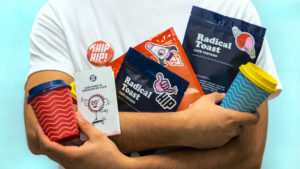

Those solvents are used as process solvents in the manufacture of active pharmaceutical ingredients (API) which are then used in X-ray contrast media to detect cancer and leukemia. 100’000s of patients use those products daily to receive a diagnosis. The solvents are used in contained processes (as a solvent to obtain the target molecule in the final synthetic step and for purification in subsequent process steps) and are subject to strict process controls.
SPOT ON
Glycol ethers such as:
Diglyme (CAS: 111-96-6 – EC: 203-924-4)
2-Methoxyethanol &
EGME (CAS: 109-86-4 – EC: 203-713-7)


Marine coatings are a type of protective coating used in the marine environment to protect ships, vessels, tankers, but also other materials such as ship propellers, buoys, or structures on offshore wind park foundations or oil rigs from pitting and bacterial corrosion in water. Long-term resistant coating systems with no need for future refurbishment – combined with flawless application operation activities – are essential, as offshore repair is difficult. As ships and structures that are exposed above or below water, various corrosion protection systems are applied to improve safety, maintain appearance and reduce maintenance costs. Coatings with a blend of solvents are used to achieve optimum solvency and regulate the drying time which needs to be quick.
SPOT ON
Aliphatic &
Aromatic hydrocarbon solvents


Isopropyl alcohol (IPA) is a potent antimicrobial, killing micro-organisms by inhibiting their growth and stopping their spread. It kills 99.99% of germs within 10-30 seconds of its application, making it one of the best sterilization tools. Its different solutions, purity grades, concentration, and alcohol types produce disinfecting products that rapidly destroy pathogens and harmful microbes, making IPA one of the most effective disinfectants. Rubbing alcohol, hand sanitizer, and disinfecting pads typically contain a 60–70% solution of isopropyl alcohol (or ethanol) in water. Water is required to open up membrane pores of bacteria, which acts as a gateway for isopropyl alcohol.
SPOT ON
Alcohols such as:
Isopropyl alcohol (IPA) (CAS: 67-63-0 – EC: 200-661-7)
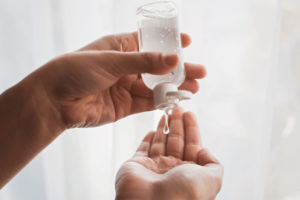

Solvent-based cleaners primarily clean by using their solvency power to penetrate and dissolve the soil. Glycol ethers improve the wetting of the surface to be cleaned, and penetrate both water-soluble and oil-soluble soils. Glycol ethers and alcohols are widely used in water-based formulations due to their high degree of water compatibility. Many different cleaning products exist nowadays focusing in which area or type of product to be cleaned such as glass cleaners, carpet cleaners, floor cleaners and oven cleaners.
SPOT ON
Alcohols such as:
Isopropyl alcohol (IPA) (CAS: 67-63-0 – EC: 200-661-7)
Propylene glycol ethers such as:
Dipropylene Glycol (Mono) Methyl Ether (CAS: 29911-28-2 – EC: 249-951-5)
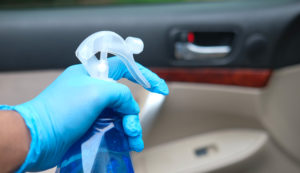

Solvents help formulating the most efficient agrochemical formulations by for instance optimize the dosing of the active ingredient. They dissolve the active ingredients. As adjuvants they help reduce the amount of plant protection product required by enabling it to spread uniformly and dry slowly, leading to higher absorbency. Hydrocarbon solvents are used in oil containing sprays to coat the leaves of the crops and protect them against insects.
SPOT ON
Hydrocarbon solvents such as:
C7-9 Aliphatics
C9-14 Aliphatics (<=2% aromatic)
